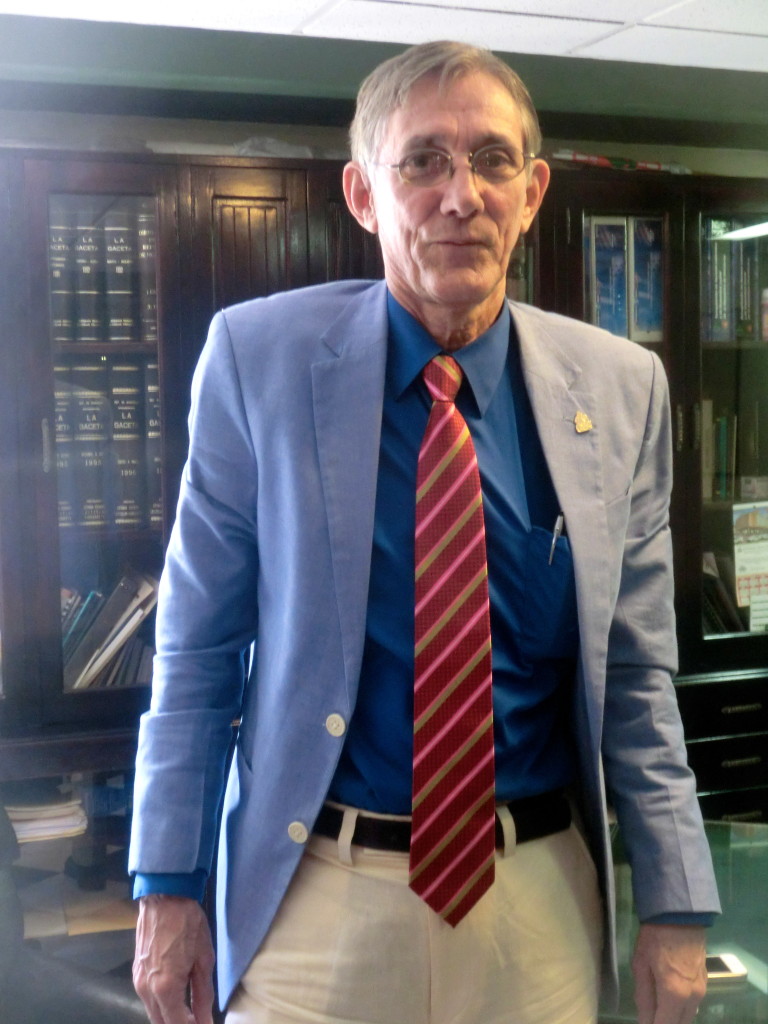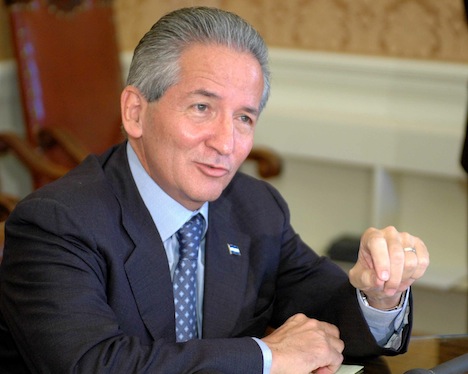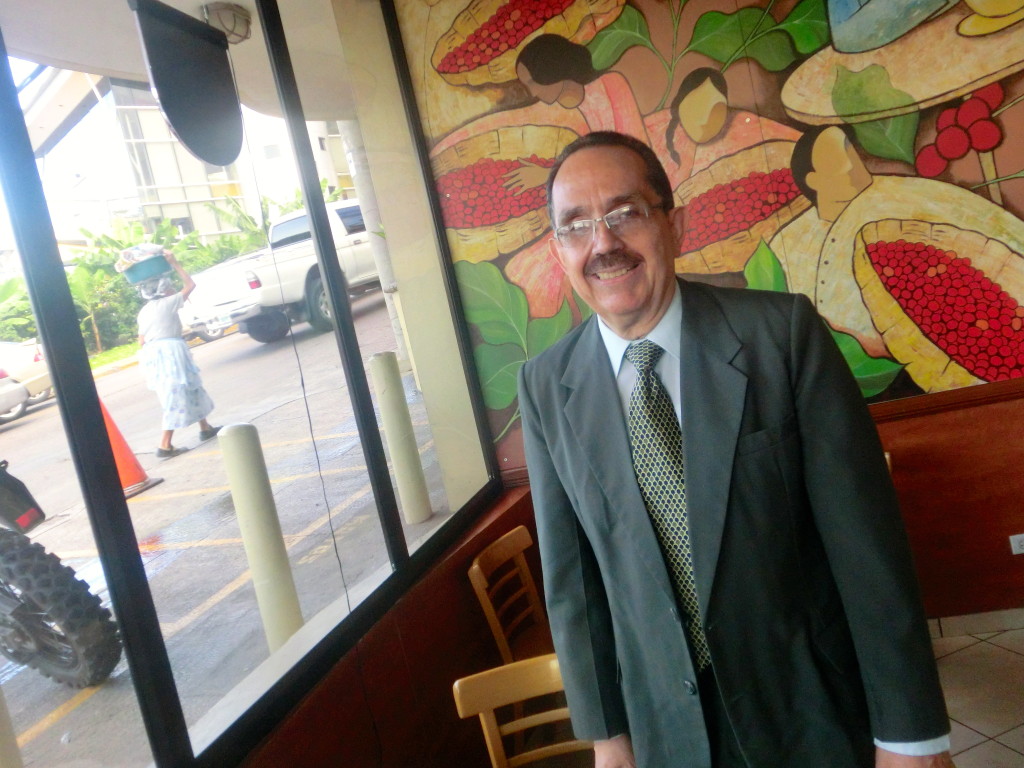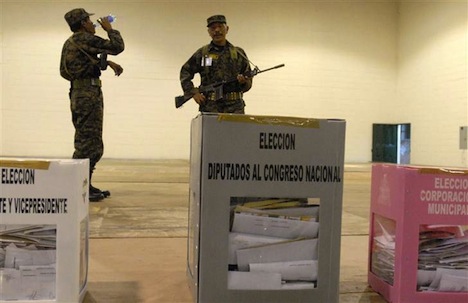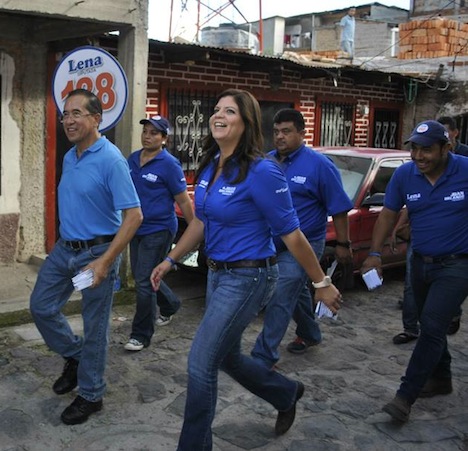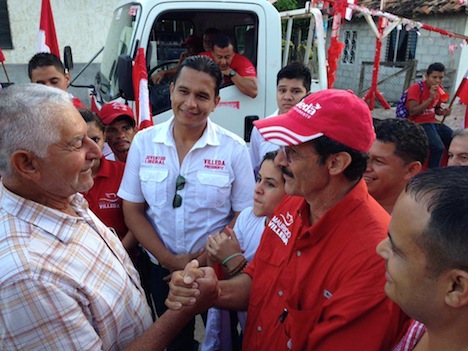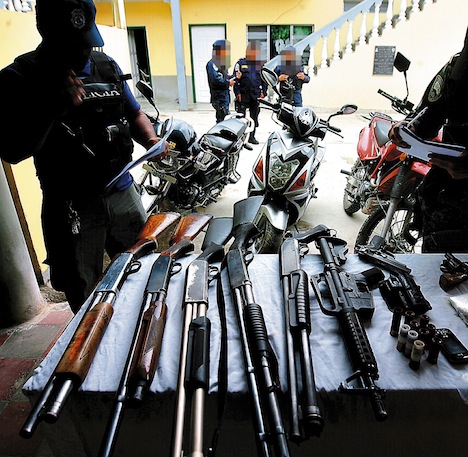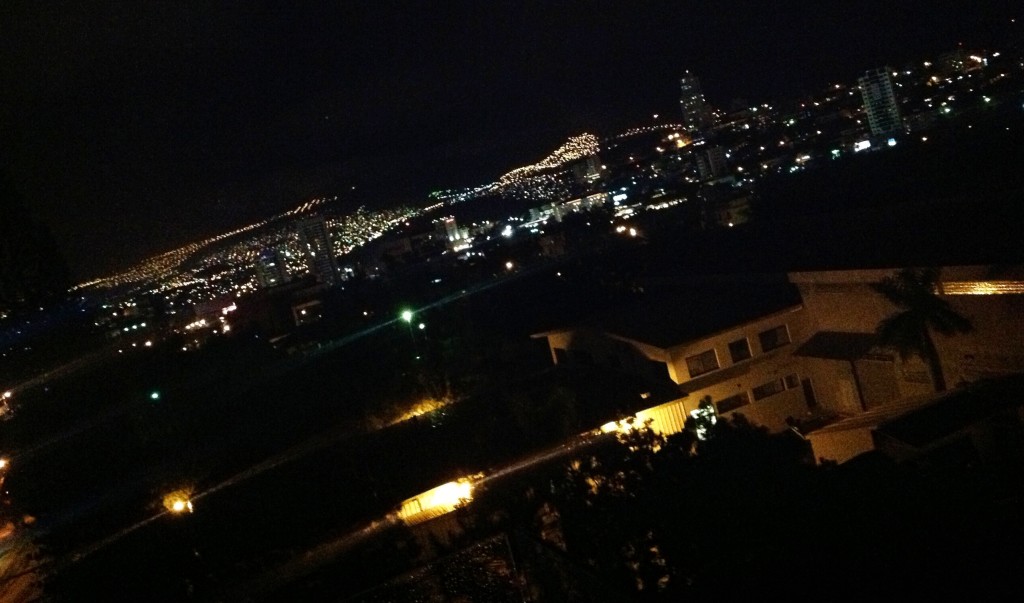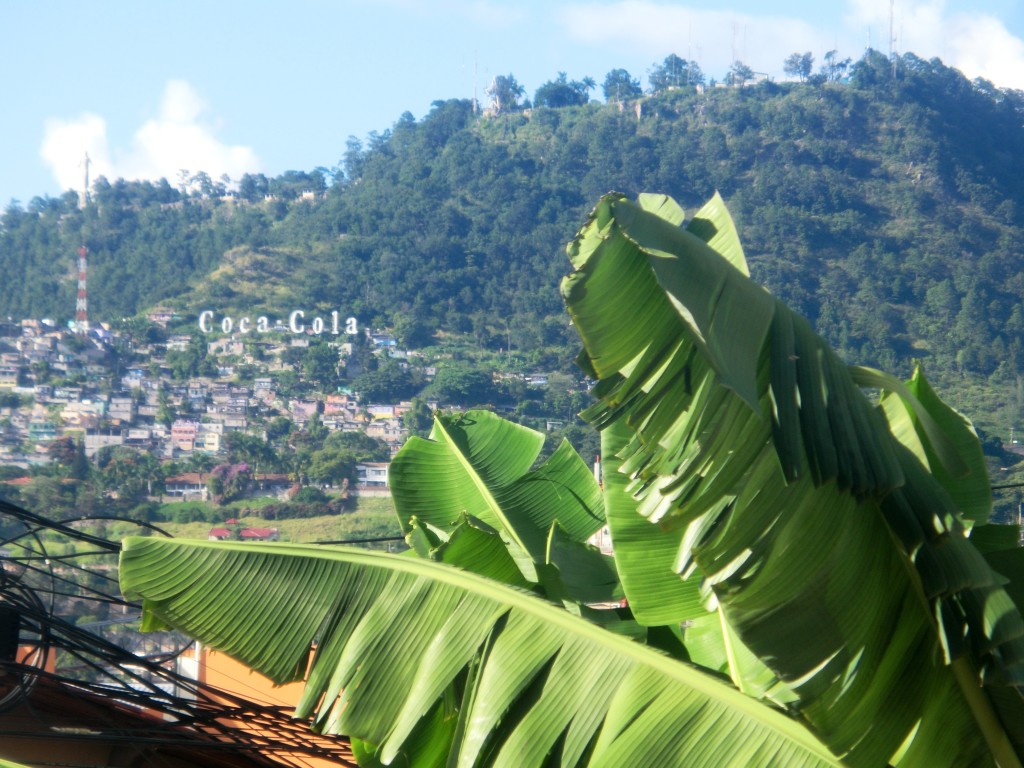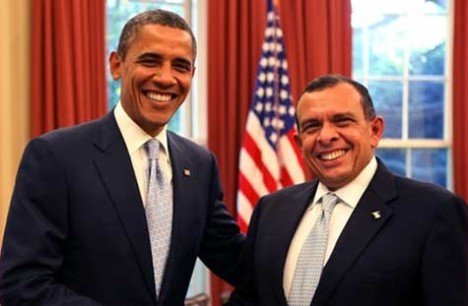TEGUCIGALPA — Germán Leitzelar seems particularly spry for 68 years. In the course of an hour’s discussion in his law offices on the top floor of the Miraflores mall in central Tegucigalpa, he’ll bound up to grab a well-worn copy of the Honduran constitution to make a point, and then point out one article after another with the tenacity of an attorney half his age.![]()
Leitzelar (pictured above) is at once both inside and outside Honduras’s political elite.
A congressman for the Partido Innovación y Unidad (PINU, Innovation and Unity Party), Leitzelar represents a small party that’s never held more than five seats in the unicameral, 128-member Congreso Nacional (National Congress). PINU was founded in 1970, after the destabilizing ‘Fútbol’ War with El Salvador in 1969, as an alternative to the two main political parties at the time — the conservative Partido Nacional (National Party) and the more centrist Partido Liberal (PL, Liberal Party).
‘We have always been a party that been focused on thoughts and processes, and it hasn’t always been a party that appeals to the mass majority, but working for the mass majority, with democracy always in mind, constituting an equilibrium, a balance in Congress,’ he said.
Leitzelar opposed the June 2009 coup that ousted Manuel Zelaya from power (though he’s certainly no fan Zelaya’s), and he’s been a strident critic of the president of the National Congress, Juan Orlando Hernández, the National Party’s presidential candidate. In particular, Leitzelar spoke out against a 2012 vote by the National Congress to depose four justices of the Honduran supreme court, which he believed was unconstitutional.
But lest you believe Leitzelar is simply a good-government ninny tossing pebbles into a political system where PINU barely causes a ripple, he’s also been at the heart of Honduran power — as minister of labor in the previous National Party administration of Ricardo Maduro (pictured below) between 2002 and 2006. Above the sofa in Leitzelar’s office is a large framed drawing of the entire cabinet in caricature, and Leitzelar believes that it represents as good a government as Honduras has ever had.
Many Hondurans view Maduro’s administration as somewhat of a success, at least insofar as that it didn’t result in a military coup (like the Zelaya administration) or preside over the deterioration of Honduran security and the Honduran economy (like the current administration of Porfirio Lobo Sosa). It’s a view that Leitzelar shares, and he has as much disapproval for the first Zelaya administration as the current administration.
‘Maduro’s presidency was a process of conciliation with regard to the country’s economy, debt reduction, and ultimately pursued a strategy of poverty reduction from the proceeds of the debt reduction,’ he said. ‘It was a completely technical government with influence from the World Bank. I was not a member of National Party, but the government that followed Maduro introduced new rules, and that’s when the crisis began, because they destroyed what Maduro had done. They used the funds for another vision, and the result was the political crisis of 2009, or the coup over constitutional change, or a constitutional crisis. The name doesn’t matter — the color of the cat doesn’t matter, as they say, but whether it chases mice.’
‘The issue is that the new government modified everything, and all the funds from the debt reduction were spent in another way. There was a high level of corruption and impunity in Zelaya’s government, and it was even worse in the six months of [interim president] Roberto Micheletti. Not only did they accrue debt, but they also abused the national funds. In [Lobo Sosa’s] government, with all of its defects, it has one virtue – even though it wasn’t able to grasp the financial situation, it did stabilize the crisis, it avoided further unconstitutional confrontations and it reintroduced Honduras into the international arena. However, it has failed in a bunch of other areas, such as drugs, impunity and corruption.’
By extension, he has low expectations for either a Hernández presidency or the presidency of Zelaya’s wife, Xiomara Castro de Zelaya, who leads the leftist, newly founded Partido Libertad y Refundación (LIBRE, Party of Liberty and Refoundation), a party that Leitzelar sniffingly refers to as Liberales en resistencia (‘Liberals in resistance’). Continue reading An interview with Germán Leitzelar, Honduran congressman and former labor minister
